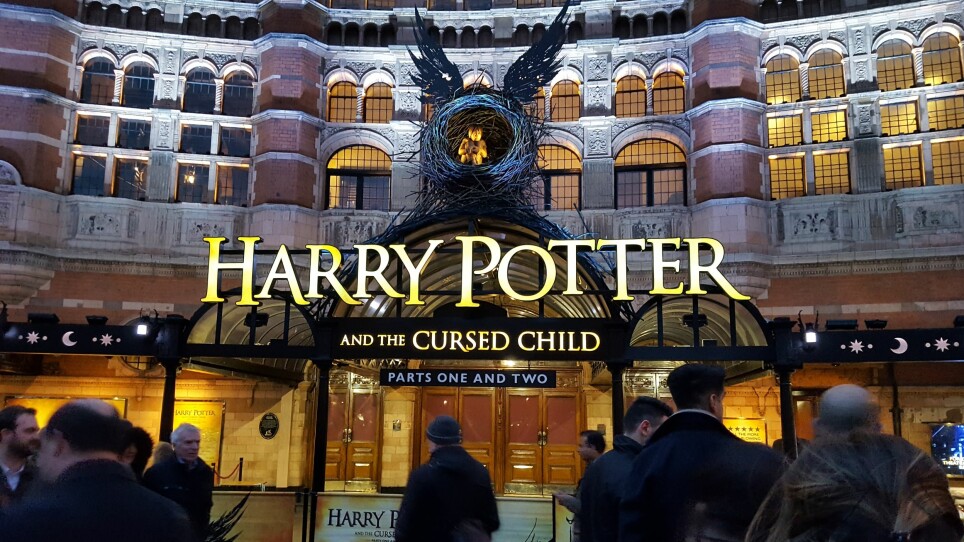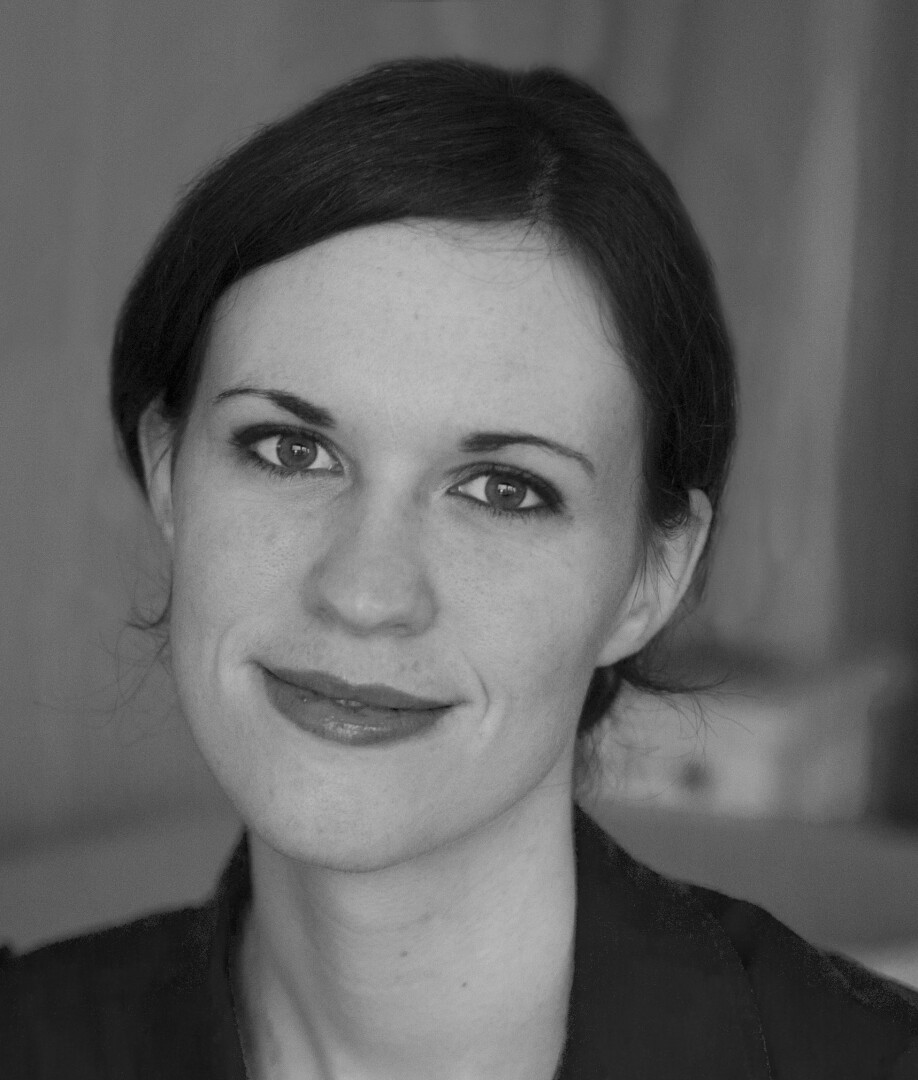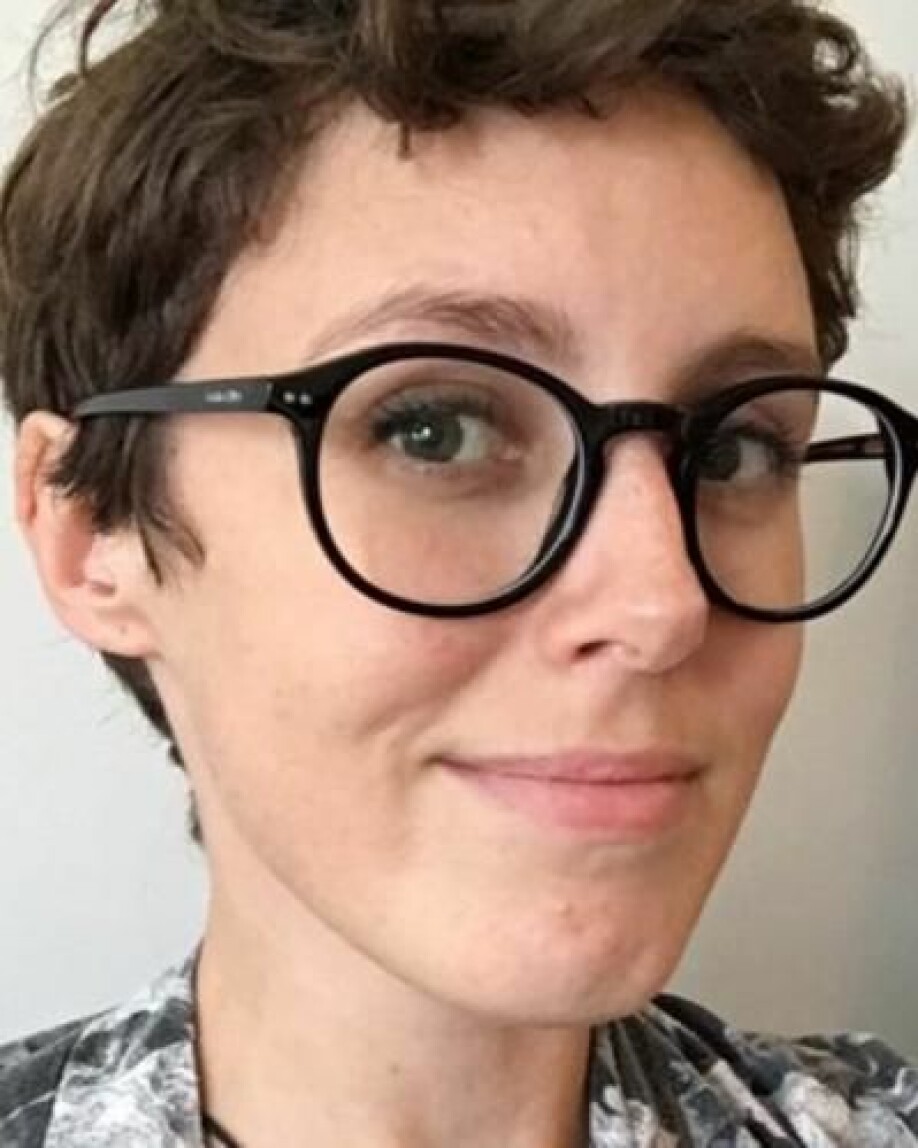
Harry Potter fans explore gender and sexuality online
The Harry Potter books are pervaded with queer and transsexual symbols, says Jennifer Duggan. She has written a PhD thesis about the internet culture surrounding to the book series.
Harry Potter has a huge body of followers on the internet – often referred to as fandom. Many of these followers write so-called fanfiction, stories that are built on the plot, characters and universe in the books.
“This is fiction written by fans, for other fans, and most often without any financial involvement,” says Jennifer Duggan.
Duggan has studied these fans in her PhD thesis, in which she has focused on sexual minorities and gender minorities within the Harry Potter fandom.

“I am interested in how they change the characters’ sexuality and gender, but also in how they change the characters’ ethnicity when they develop the Harry Potter universe in their own fanfiction,” says Duggan.
Difficult to study young people
“Many people belonging to the Harry Potter fandom are transsexual, queer and intersexual, or they have a fluctuating gender identity.”
The amount of people belonging to a gender minority is larger than in general society, Duggan explains. But we still know very little about the fandom members’ gender, since it is difficult to get a full overview of these young people’s gender identity.
One obstacle that makes it difficult to study children and youth is that we needs a confirmation from their parents or legal guardians in order to conduct interviews and surveys.
“We cannot take for granted that a child is out of the closet or that it is safe for them to tell their parents that they belong to a gender minority or a sexual minority,” says Duggan.
An accommodating world
“People belonging to a gender minority often feel more welcome within fandoms than they do in the normal world,” says Duggan.
It is not always like that, however, and Duggan herself was kicked out of a fandom in which she was an active member when the administrator found out the she was under eighteen.
“But most researchers who have written about this before have spoken to people saying that ‘if there is one group that would never judge me for being who I am, it is the Harry Potter fandom.’”
Duggan refers to legislations that prevent transgendered people from using their preferred toilet in public places, LGBT free zones in Poland and the Norwegian political party Kristelig folkeparti’s (The Christian Democratic Party) proposal to prevent under-aged people from receiving hormone treatment. According to her, these are all consequences of gender minorities becoming more and more visible in the public sphere.
“Visibility is an important topic in my research, and also in the trans community. Visibility has both negative and positive consequences.”
“It is important for those who are part of a gender minority to have role models that people can dream about and identify with, but visibility can also mean that gender minorities become more exposed to harassment and that new legislations are introduced that negatively affect transgendered people,” says Duggan.
J.K. Rowling provokes
The increasing number of people who are openly transgendered, intersex or gender fluid also causes reactions – from the author of the Harry Potter books herself among others, Duggan explains.
J.K. Rowling has been in rough water in recent years following Twitter messages regarded by many as transphobic, and for actively supporting a transgender critical researcher.
“Is J.K. Rowling regarded as transphobic in the fan communities?”
“Yes, definitely. There are of course also people who agree with her, but I think they are a minority.”
And although some people have sold their Harry Potter books in contempt, many people have also remained in the fan communities because they find them supportive, according to Duggan.
Many Harry Potter fans have taken to Twitter and the newspapers to demonstrate their disagreement with the author’s statements. Duggan has also seen a development where more and more people are openly transgendered or queer in their online profiles following J.K. Rowling’s tweets.
The researcher as research object
In the collection of articles that make up the PhD dissertation, Duggan has applied a number of methods from the social sciences and the humanities. Queer, trans and feminist theory lies at the foundation.
She has gathered information from the profiles of members of the fandoms, and one queer and one transgendered person from the Harry Potter community have sent their autobiographical narratives to her.
Duggan herself used to be an active member of a fan website, and she has used her own experiences as data.
“I was a huge Harry Potter fan as a child, and this was the first major fandom that I discovered online.”
“This was the only source I knew in which I could read about bodies that were not only boys or girls, and where I could read queer stories,” says Duggan.
These stories were difficult to find when Duggan herself was a teenager in the early 2000’s.
“Like many others who are now in their thirties, I was not entirely aware of the differences between drag queens and transgendered people, for instance. There was a lot of information that we simply did not have access to,” says Duggan.
“Fandom became an important source of information, but also of confirmation, for someone who did not really know who she was or how to describe her sexual attraction and her own gender identity.”
Through fandom, Duggan realised that she was not the only one interested in the opportunities for considering herself as more than just a woman or as someone with a fluctuating gender identity.
“This was the first place in which I discovered that being slightly different was possible.”
Queer symbols in the books
Within the fan communities and the fantasy genre, fans are given the opportunity to dream themselves away from their own bodies, Duggan explains.
“To many, it is important to have fantasies that deviate from what they may experience in reality.”
Duggan has studied the fan community surrounding the books, but she has also conducted a queer reading of Harry Potter. She finds many symbols that may be read and interpreted as symbols of various gender identities and sexual orientations.
“Harry Potter may be read as a story about a boy who comes out of the closet.”
Harry Potter grows up with his uncle and aunt who are both Muggles, that is, people without magic skills. When he is eleven years old, he is introduced to an entirely new, magic world when he becomes a pupil at Hogwarts School of Witchcraft and Wizardry.
“Since queer generally means ‘anti-normative’, one may read the books from this perspective. The family that Harry Potter grows up with considers the whole magic world abnormal,” says Duggan.
Fandom became an important source of information, but also of confirmation.
“Harry enters a world that is very ‘camp’,” says Duggan. This refers to a world in which people have an exaggerated, untraditional or flamboyant expression.
Here, men dress in long, purple tunics. When they dress to try and fit into the Muggle world or the non-magical world, men sometimes dress in women’s clothing, she adds.
Characters changing sex
The book and film series are filled with episodes in which wizards and witches change their sex with the aid of magic potions.

For instance, in the sixth book, Vincent Crabbe and Gregory Goyle drink a potion in order to change sex and become young girls to avoid being recognised. Hermione Granger and Fleur Delacour do the same thing to pass themselves off as Harry.
“There is a lot of ‘shifting’ going on in the books; there are werewolves and human characters who can shapeshift into animals or take other forms,” says Duggan.
Nymphadora Tonks is also a character that reappears in much of the fanfiction.
“She can shapeshift to become other people, or she can put on a male nose. It is therefore easy to imagine that she can change more than just the nose,” says Duggan.
“In this perspective, it is a very interesting series for people who wish to change their sex or who have fluctuating gender identity.”
Established fanfiction
Marianne Gunderson is a PhD fellow at the University of Bergen who has followed internet culture, fandoms and fanfiction closely.
She also has the impression that fanfiction often revolves around queer topics and that it is often used to explore sexuality.
According to her, the Harry Potter fandom is interesting because many of the stories in the fanfiction are largely detached from the original books.
“Normally, the source represents the ‘correct’ version of the characters and the narratives, but when it comes to Harry Potter, the fans have created their own truth about the characters.”
Harry Potter may be read as a story about a boy who comes out of the closet.
Even though there is no unison consensus among the fans, many stories have portrayed Hermione as black or Harry as Indian. These ideas about the characters have been largely formalised in the fan community, she explains.
“Fandom has a great deal of conventions, and some of them are about sexuality,” says Gunderson.
Openness and playfulness
According to Gunderson, research on other fandoms also shows that a large number of the members are queer women, whereas another part consists of people who identify themselves as neither women nor men.
Nevertheless, she does not believe that all fandom members participate in order to write or read about their own identity.
“There is a lot of openness and playfulness, and many write themselves into dynamics that they find interesting,” says Gunderson.
The topics explored in the fanfiction can contribute to a normalisation of different ways of being in relationships, being gendered or experiencing sexuality, she maintains.
The authors of the genre take plots and characters from established works and make them their own. They also have certain conventions and stereotypes concerning gender and sexuality, and they rewrite in order to create narratives that they want to read.
Fanfiction about real people
Although the Harry Potter fandom is among the biggest, there are also numerous fandoms not linked to literary works or films.
“For instance, the stories may be about a boyband. I have also found several texts about the Norwegian celebrity brothers Ylvis and about the actors and the characters from the Norwegian TV series Skam (‘Shame’).”
What characterises the topics for fanfiction is what Henry Jenkins defined as fascination and frustration, Gunderson explains.
There is a lot of openness and playfulness in fanfiction.
“The fan writers want something different to happen with the characters or the persons than what actually happens in reality or in the original work.”
For instance, they may rewrite works in which queer relations are indicated without being explicitly described. Sometimes human dynamics are romanticised, for instance between rival characters, Gunderson continues.
“There has to be something that is repressed or unexpressed, and there must be room for imagination,” she says.
Translated by Cathinka Dahl Hambro.
This article was first published on Kilden kjønnsforskning.no






























